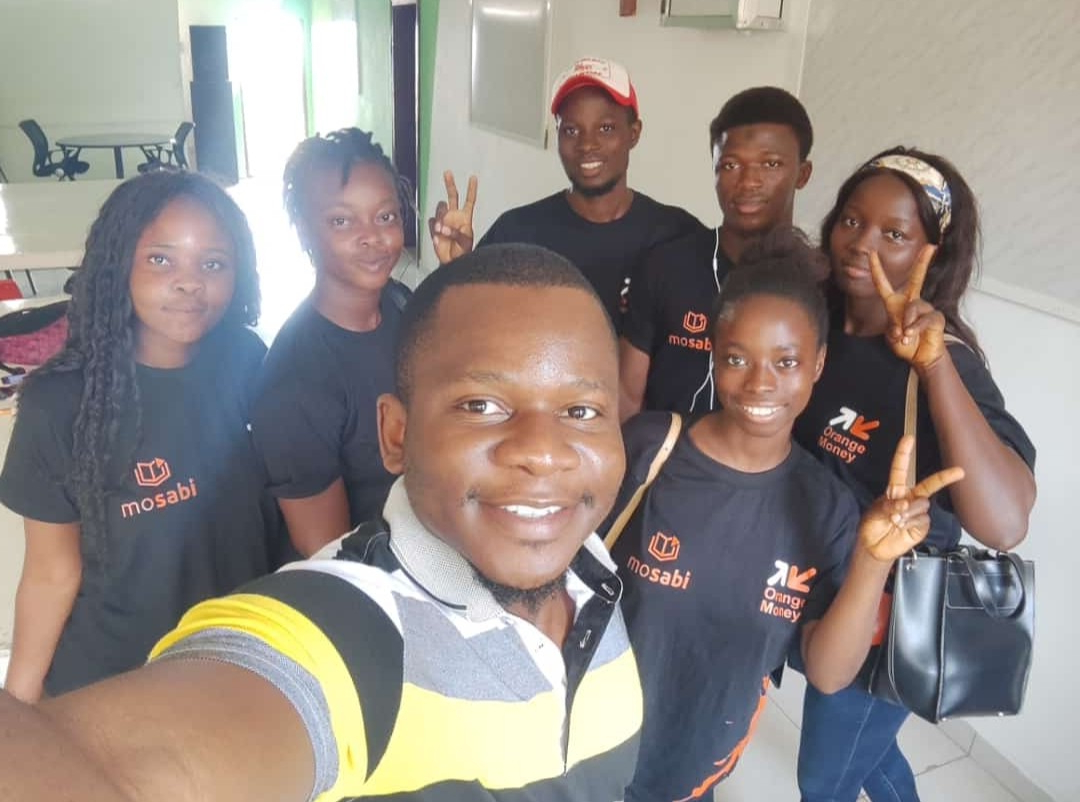Each year, the AFI Inclusive Fintech Showcase spotlights digital solutions with the promise to improve access to financial services for low-income populations. In our third interview with the 2024 Showcase winners, we profile Mosabi, a Sierra Leone-based platform which blends fintech and edtech to help people manage their businesses and money.
What is Mosabi, and what problem are you trying to solve?
Low-income, informal sector entrepreneurs often have limited formal education and financial literacy, and little to no access to capital. To address this, we created Mosabi, an AI-driven, digital platform for navigating work and financial journeys, which boosts users‘ technical skills, financial decision-making, product access and engagement, and overall financial health. Through toolkits and gamified learning modules, users are empowered to engage with digital financial literacy training that is customized to, and synchronized with, their own context.
Our vision is to develop a whole ecosystem with incentives, product linkages, contextualization, and automation to promote upward mobility and financial health for all people, providing pathways beyond subsistence-level income. As such, we‘re contributing to a world where education and access to financial products are available to all.
What have been the most challenging aspects of growing Mosabi?
- Refining multichannel design approaches to be regionally and globally scalable, while straightforward and localized for any given country and segment.
- Embracing best design practices to build, engage, sustain and scale our user base to a critical mass of learners across target markets. Embedding finance without bloating the user experience requires careful design perspectives, feedback, and planning.
- Building Mosabi’s curriculum library to set the standard for key livelihood skills and financial education.
- Making the best choices for the financial providers and agent networks with which we integrate.

What are your ambitions for the firm?
Scaling across the Global South is our headline ambition! Mosabi’s target population is low-income, financially excluded or underserved grassroots entrepreneurs and MSMEs in emerging markets. So far, our focus countries have been Sierra Leone, Ghana, Senegal, Kenya, Zambia, Malawi, and Rwanda. We have localized our entire platform for African English, French, and Portuguese, as well as 18 African indigenous languages. Additionally, we’ve prepared for Latin American operations by localizing to Spanish, and are launching a pilot operation in Mexico this year.
We’ve essentially built a learning management system from scratch, because no other system on the market can handle local indigenous and vernacular approaches. The platform even works for non-Roman language alphabets – we are piloting Arabic, Hindi, and Khmer interfaces.
All in all, Mosabi can be a “nerve center” learning management system with a cloud-based content delivery network and product matching engine, scaling to meet needs as they evolve for machine learning, analytics, and natural language processing.
Within 5 years, we hope to launch in 20 countries and serve 10 million learners across the Global South. Through supporting low-income, informal sector entrepreneurs and MSMEs, we aim to boost the financial inclusion and financial health for 3 million microentrepreneurs across sub-Saharan Africa by the end of 2026.
How do you view the role for central banks and financial in advancing progress?
Mosabi is a foundationally data-driven organization, and we set our sights squarely on impact metrics indicating improved financial health. We would love to join in collaborative dialogue with central banks and financial regulators on embracing best practices for ethical, inclusive data science that place client protection and privacy at the center of approaches. There are also interesting avenues for how impact measurement data is shared among innovators, global development actors, and impact investors.
At Mosabi, we’re both inspired and challenged by the new pathway we have forged. We feel a tremendous responsibility to be learning every day. Accordingly, we have thrust ourselves into sector working groups and task forces – and we see AFI leading the way with these approaches. The speed of inclusive fintech innovation can be breakneck, but together we can make sure approaches are responsible and inclusive. Innovations like ours should be user-centric, accessible, privacy-oriented, and transparent.

 About
About
 Online
Online
 Data
Data



















